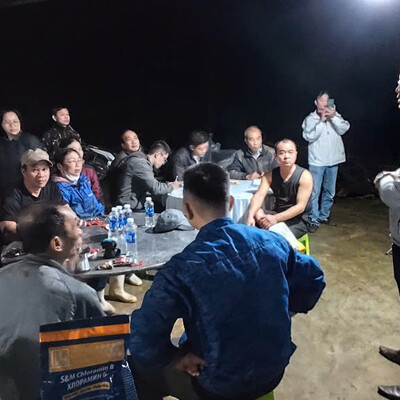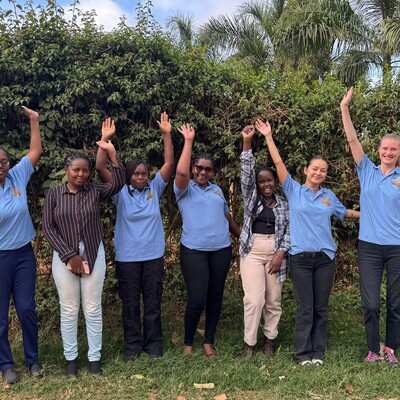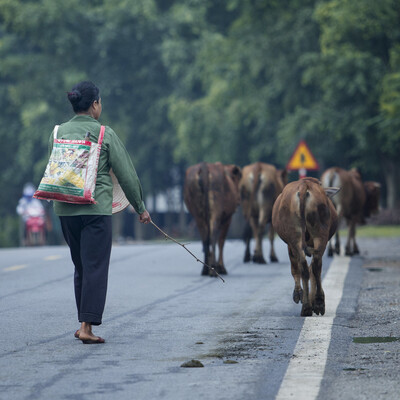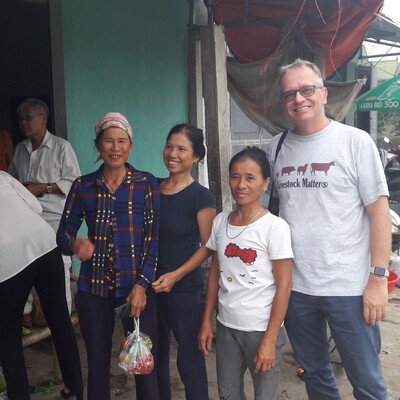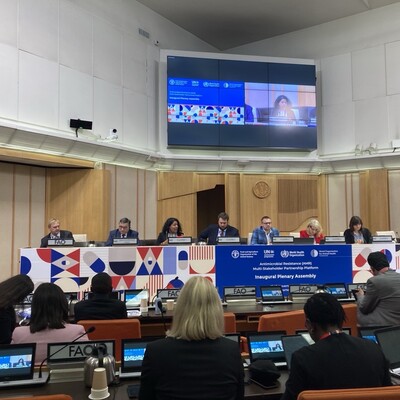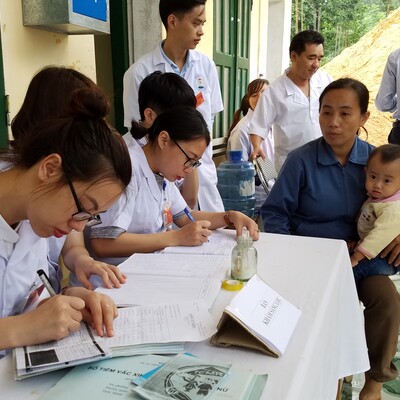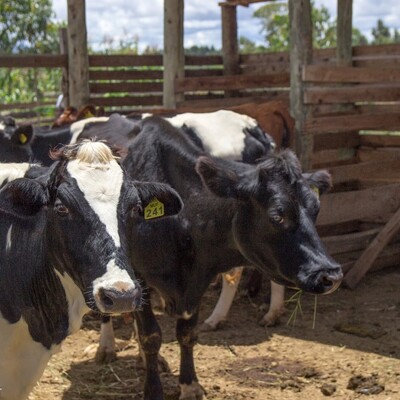
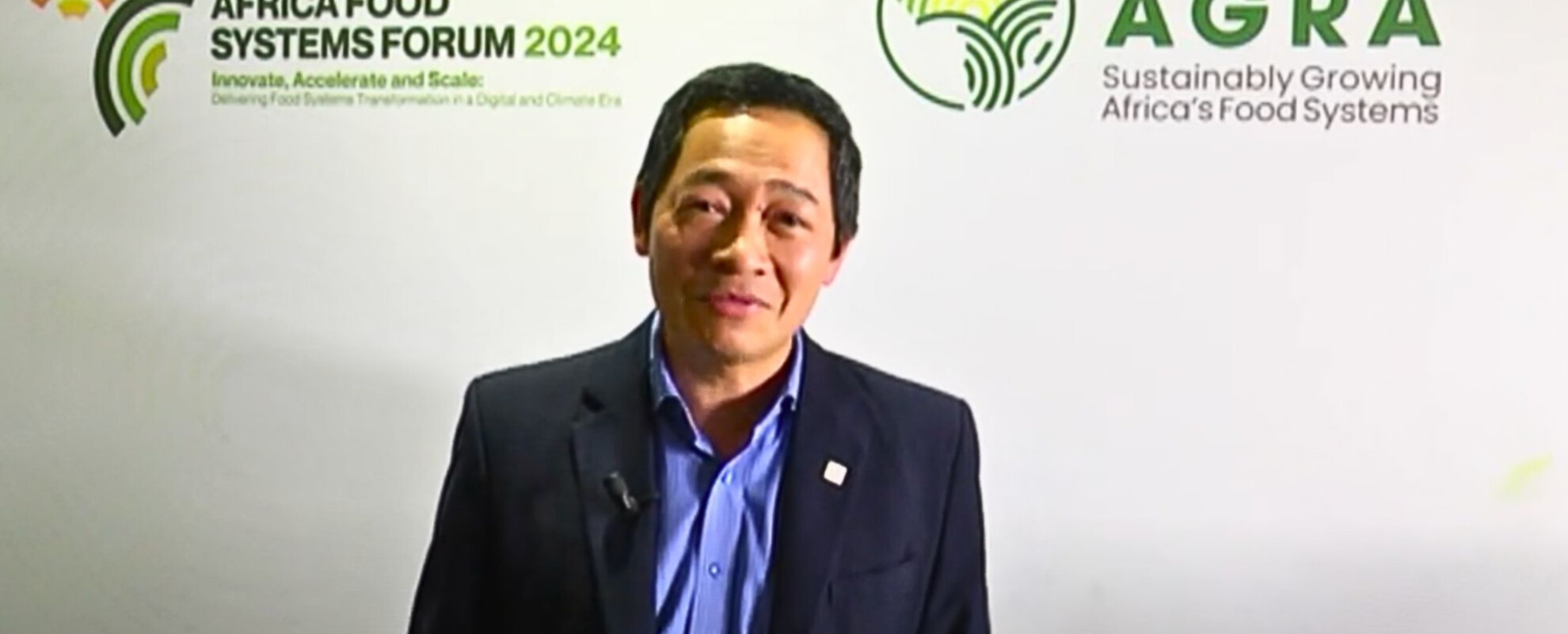
Reflections on the 'big commitments' ILRI One Health leader Hung Nguyen saw at the Africa Food Systems Forum this year in Kigali
Posted on
The following reflections about the 13th Africa Food Systems Forum, which was held 2–6 September 2024 in Kigali, Rwanda, were made by Hung Nguyen, a science leader at the International Livestock Research Institute (ILRI), while attending the Forum for the first time this year.
‘Food systems’ involve farmers and food sellers, for sure, says Hung Nguyen, but also our economic and environment and social and political sectors. But at the end of the day, Nguyen believes food systems really come down to people. For that reason he was pleasantly surprised that the participants of the Forum weren’t just scientists and policymakers, but also farmers, consumers, investors and young entrepreneurs—‘a really cool mix of people who are all working towards the same goal, to find solutions that last and that are fair to everyone, including future generations’.
Nguyen was particularly excited about the commitment he saw at the Forum from governments and private companies. It seemed to him that most people now realize that the solution is not just to throw money at a problem, but rather to fund the right solutions and to create the environments where these solutions can actually work.
The following are among his observations.
'This is my first participation of this Africa Food System Forum, organized by AGRA (Sustainably Growing Africa's Food Systems) and hosted by Rwanda.
'I met many interesting people, colleagues and friends, and we had an excellent overview of the food system challenges and opportunities on this continent.
'The theme of the Forum was the need to innovate, accelerate and to scale innovations to speed the transformation of Africa’s food systems. This theme is very relevant for Africa, which has more than 300 million hungry people.
'The ILRI delegation came here to discuss investments in livestock development.
Why livestock? Because food producing farm animals—cattle, sheep, goats, pigs, chickens, and camels—support the food security and livelihoods of about one-third of Africa’s population, or about 350 million people.
'Livestock offer these people a wealth of opportunities, in particular better nutrition and food security. At the country level, in particular in Africa, livestock contribute to around 40% of agriculture GDP and for some countries, that percentage goes up to 80%.
'Africa’s smallholder livestock systems offer solutions to more than food and nutrition security. Farm animals also offer solutions for climate change adaptation and mitigation and for human and ecosystem health. So that is why my research focuses on the “One Health” approach, which looks at issues at the intersection of animal, human and environment health.
We need to leverage existing innovations, to scale proven solutions, and to foster new research. And we need to upscale our work with women, youth, and private companies.
'In most of my discussions here, I’ve seen a big commitment of different stakeholders and actors to transform the food system in Africa. Many government ministers were here, as well as researchers, development partners, financing people, but also agriculturalists, farmer organizations, women’s groups, and young people.
There appears to be a big commitment from a lot of different people to make this food system transformation happen.
'We need different people to work together to build a better future. And that is exactly what I saw happening at this Forum. I leave Kigali with big hope that, together, we can speed the transformation of Africa’s food systems.'
Hung Nguyen leads the Health Program at the International Livestock Research Institute (ILRI) and the CGIAR Initiative on One Health. His research focuses on the link between agriculture and health, food safety, and infectious and zoonotic diseases with an emphasis on risk assessment and intervention of food safety in informal and traditional markets using a One Health approach, which considers the interconnectedness of animal, human, and environmental health. ILRI's research focuses on sustainable and equitable livestock development and its role in food systems in low- and middle-income countries.
The Africa Food Systems Forum (AFS Forum) is the world's premier forum for African agriculture and food systems, bringing together stakeholders to take practical action and share lessons that will move African food systems forward.
Go here for more information about ILRI's One Health research.
Listen to Hung's 10-minute video: Africa Food System Forum 2024—Reflections of Hung Nguyen from ILRI / CGIAR.
You may also like
Related Publications

Review of a decade of fauna research in Côte d'Ivoire with insights into wildlife health and zoonotic transmissions
- Dindé, A.O.
- Cook, Elizabeth A.J.
- Terfa, Zelalem
- Soro, D.
- Hung Nguyen-Viet
- Bett, Bernard K.
- Bonfoh, B.

Biodiversity threats and socio-ecological dynamics in Chebera Churchura National Park: A one health approach
- Guadu, T.
- Abera, B.
- Tesfay, K.
- Berhane, A.
- Tafese, A.
- Solomon, T.
- Debebe, B.
- Getachew, M.
- Shibabaw, A.
- Araba, A.
- Abdurahman, M.
- Yadeta, W.
- Tadesse, Y.
- Ayemeta, T.
- Knight-Jones, Theodore J.D.
- Mor, Siobhan M.
- Mereta, S.T.
- Kaba, M.

A one health approach to prioritizing emerging zoonotic diseases (EZDs) in northern Vietnam
- Luong Hung Nam
- Thang Nguyen-Tien
- Lindahl, Johanna F.
- Sinh Dang-Xuan
- Phuc Pham-Duc
- Unger, Fred
- Bui Nghia Vuong
- Dao Duy Tung
- Hung Nguyen-Viet
- Hu Suk Lee

From protection to pollution: Evaluating environmental and human health risks of acaricide use in dairy farming in Kenya
- Maina, Kevin W.
- Parlasca, M.C.
- Rao, E.J.O.





